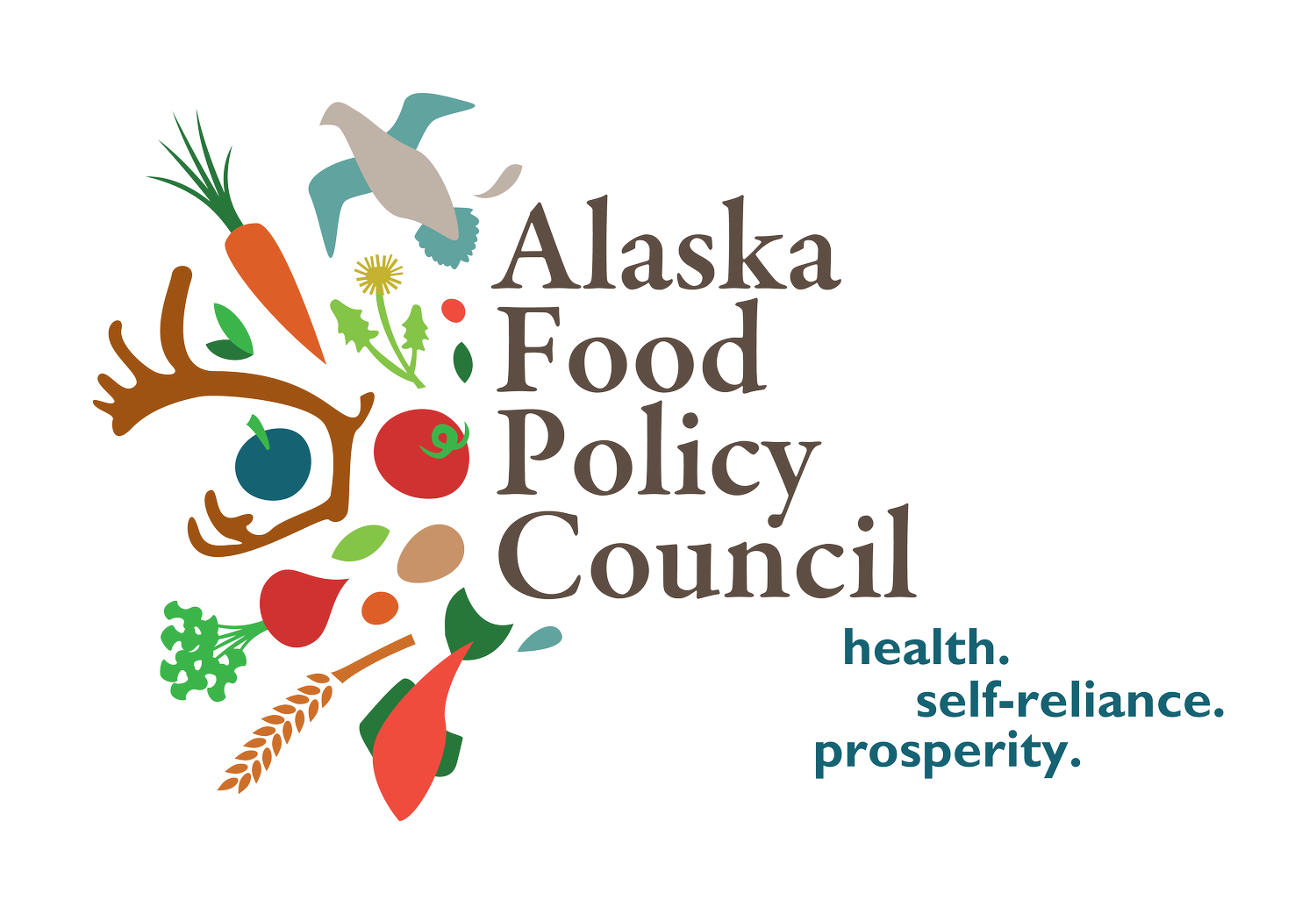As always, it was a busy legislative season in Juneau! The session has wrapped, we wanted to take a moment to celebrate all of the bills that passed which aim to support a more resilient food system around the state. Here’s a recap of those bills:
HB 298 will form an Alaska Food Strategy Task Force, a continuation and expansion of Governor Dunleavy’s Food Security & Independence Task Force.
The task force will be comprised of 36 individuals representing various aspects of the food system, including legislators and relevant state commissioners. Notably, the Alaska Food Policy Council has two designated seats on the executive board!
The task force will provide recommendations for strategy and policy on such topics as sustainability in the agriculture industry and local markets, ensuring a good regulatory climate for processors and distributors, addressing food waste, streamlining state-run programs concerning food access and availability, and ensuring food security in all communities in the state.
Additionally, HB 298 establishes a forgivable loan program, where farms can apply for money from a general fund.
In actuality, this money acts more as a grant with stipulations, as farmers who are recipients of the loan can have the debt of the loan forgiven as long as they implement an approved business plan. This business plan should aim to use the money received from the loan as capital for investments that will build resiliency in the state’s food supply, benefiting everybody.
This loan can total up to $150,000 and a specific process is outlined to ensure that the farms create improvements with the money before it can be forgiven. Any money not spent, even if approved in the business plan, must be repaid.
This loan program also extends to meat packing plants, which must show some kind of improvements like increased efficiency or quality of meat produced and must be from animals raised in the state to be forgiven.
This fund promotes improvements for Alaska food producers and processors, seeking to ease dependence on outside food.
HB 168 establishes a directive for numerous state services and benefits to offer client applications online, for greater efficiency.
This includes SNAP (Supplemental Nutrition Assistance Program, formally known as food stamps), disabled support, and many other assistance programs.
This will provide greater access for those signing up for these programs as they can now simply sign up within their home, removing barriers, like access to transportation, that can inhibit people from receiving the services they are entitled to.
HB 347 ensures that animal records held by the Department of Environmental Conservation are to be made confidential, so that private citizens and those government agencies who do not have the authority to do so, are unable to view these records.
This change seeks to protect trade secrets for businesses, creating an incentive for businesses to innovate while still allowing for regulatory agencies to still do their due diligence.
The Department of Environmental Conservation will still have access to these records and can distribute them to other departments or agencies if there is a reason to do so.
HB 281 outlines the budget for the next fiscal year starting on June 30, 2022. The highlights pertaining to food policy and security are as follows:
$1,250,000 was designated from the Fish and Game Funds to be used for wildlife management surveys and assessments that will seek to provide information that will help enhance food security by understanding the natural fish and game resources.
$3,000,000 was given to the Food Security Agriculture Incentive program which provides funds for the Alaska Division of Agriculture to continue its program of giving grants, loans, and financial incentives for agricultural investment, supporting and growing the food industry in the state.
$600,000 was dedicated to starting new school breakfast programs and expanding existing ones to ensure that children who may not have access to breakfast at home get the food they need in the morning, providing a level of food security for children.
$10,000,000 was given to Food Bank of Alaska for infrastructure capacity for Alaska’s statewide food assistance network.
$500,000 was designated for the Alaska Farmers Market Association, which helps ensure that farmers markets are able to operate effectively as they provide a space for people to exchange local food products, benefiting local farmers and helping to establish a local food system that can resist outward changes. This funding will be used to provide double SNAP, WIC, and SFMNP benefits at markets statewide.
A very special thanks to all the many people who worked tirelessly to ensure these priorities were heard by our decision-makers, including the Food Bank of Alaska, the Alaska Food Coalition, the Alaska Farm Bureau, the Alaska Farmers Market Association, Alaska Farmland Trust, Intertribal Agriculture Counil, Alaska Food Policy Council, and many more. THANK YOU.




